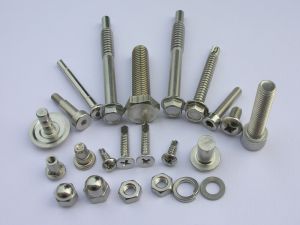Waterproof Testing Instruments Environment Testing Instruments,Waterproof Testing Device,Handheld Sprinkler,Spray Nozzle Guangdong Yuwei Testing instrument Co., Ltd , http://www.yuweiinstrument.com Over the past few years, the hardware manufacturing industry has increasingly shown its export-oriented nature. There has been a significant rise in the export of hardware goods, with major categories like electrical tools, hand tools, and architectural hardware seeing rapid growth. Even smaller segments such as kitchen appliances and bathroom products, which previously made up a smaller share of exports, have experienced impressive increases. This growing demand, coupled with China's central position in the global market, is attracting more multinational hardware companies to shift their manufacturing hubs here. As the world continues to rely heavily on China's hardware sector, it becomes crucial for us to focus on domestic resource protection and build a strong foundation to ensure long-term sustainability.
To sustain this growth, structural adjustments and industrial upgrades are essential. While China's hardware industry remains largely labor-intensive, we must recognize that these advantages are gradually diminishing. For long-term success, we need to optimize our industrial structure by balancing traditional strengths with investments in knowledge- and technology-intensive sectors. By doing so, we can close the gap with developed nations more quickly and position ourselves as leaders in global hardware production.
Another critical challenge lies in the shortage of skilled professionals. This talent gap poses a significant obstacle to the industry's progress and ultimately impacts its global competitiveness. Addressing this issue requires both internal development and external recruitment. Companies should invest in short-term employee training programs while also attracting top-tier talent through strategic hiring initiatives. Strengthening intellectual capital will empower the industry to meet future demands effectively.
Innovation stands at the heart of any thriving business model. Currently, China's hardware sector focuses heavily on quantity over quality, leading to intense competition in low-margin markets. To break free from this cycle, we must prioritize research and development. Collaborating with academic institutions and fostering independent innovation can lead to groundbreaking products that capture both domestic and international markets. Building strong brands and increasing product value will not only enhance our standing in global supply chains but also bolster resilience against market fluctuations.
Clustering small and medium-sized enterprises (SMEs) into specialized groups offers another pathway forward. Given the difficulty SMEs face competing directly with larger corporations, leveraging collective strength becomes vital. By promoting specialization within clusters, businesses can achieve economies of scale, streamline operations, and foster collaboration—all of which contribute to enhanced overall competitiveness.
Lastly, governments must play an active role in supporting these efforts. Providing robust infrastructure, incentivizing R&D activities, simplifying regulatory processes, and encouraging national branding initiatives can create fertile ground for growth. Offering tax breaks, technical assistance, and streamlined approvals for innovative projects sends clear signals about prioritizing entrepreneurship and sustainability.
Together, these strategies represent a comprehensive approach towards ensuring China's hardware industry remains competitive on the world stage while addressing pressing challenges head-on.
Over the past few years, the hardware manufacturing industry has increasingly shown its export-oriented nature. There has been a significant rise in the export of hardware goods, with major categories like electrical tools, hand tools, and architectural hardware seeing rapid growth. Even smaller segments such as kitchen appliances and bathroom products, which previously made up a smaller share of exports, have experienced impressive increases. This growing demand, coupled with China's central position in the global market, is attracting more multinational hardware companies to shift their manufacturing hubs here. As the world continues to rely heavily on China's hardware sector, it becomes crucial for us to focus on domestic resource protection and build a strong foundation to ensure long-term sustainability.
To sustain this growth, structural adjustments and industrial upgrades are essential. While China's hardware industry remains largely labor-intensive, we must recognize that these advantages are gradually diminishing. For long-term success, we need to optimize our industrial structure by balancing traditional strengths with investments in knowledge- and technology-intensive sectors. By doing so, we can close the gap with developed nations more quickly and position ourselves as leaders in global hardware production.
Another critical challenge lies in the shortage of skilled professionals. This talent gap poses a significant obstacle to the industry's progress and ultimately impacts its global competitiveness. Addressing this issue requires both internal development and external recruitment. Companies should invest in short-term employee training programs while also attracting top-tier talent through strategic hiring initiatives. Strengthening intellectual capital will empower the industry to meet future demands effectively.
Innovation stands at the heart of any thriving business model. Currently, China's hardware sector focuses heavily on quantity over quality, leading to intense competition in low-margin markets. To break free from this cycle, we must prioritize research and development. Collaborating with academic institutions and fostering independent innovation can lead to groundbreaking products that capture both domestic and international markets. Building strong brands and increasing product value will not only enhance our standing in global supply chains but also bolster resilience against market fluctuations.
Clustering small and medium-sized enterprises (SMEs) into specialized groups offers another pathway forward. Given the difficulty SMEs face competing directly with larger corporations, leveraging collective strength becomes vital. By promoting specialization within clusters, businesses can achieve economies of scale, streamline operations, and foster collaboration—all of which contribute to enhanced overall competitiveness.
Lastly, governments must play an active role in supporting these efforts. Providing robust infrastructure, incentivizing R&D activities, simplifying regulatory processes, and encouraging national branding initiatives can create fertile ground for growth. Offering tax breaks, technical assistance, and streamlined approvals for innovative projects sends clear signals about prioritizing entrepreneurship and sustainability.
Together, these strategies represent a comprehensive approach towards ensuring China's hardware industry remains competitive on the world stage while addressing pressing challenges head-on.